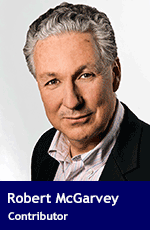 The world is changing. And while many of these changes are obvious, such as the revolution in technology or the tectonic shifts in world politics, there are also significant changes taking place in the ideas that underpin the science of economics.
The world is changing. And while many of these changes are obvious, such as the revolution in technology or the tectonic shifts in world politics, there are also significant changes taking place in the ideas that underpin the science of economics.
Why do these ideas matter? They matter because economics is a foundational science. The central ideas in economics directly impact our politics, they help guide our financial and regulatory bodies, they inform business logic and play a large role in how we measure progress and define success. Ultimately, these ideas hit everyone in the pocket book, for they determine priorities in the economy.
For example consider monetarism. Ever since the late 1960s, the most important ideas driving economics have come from the Chicago School of monetarist economics. Monetarists idealize markets; they assume for a variety of reasons that markets are pure and frictionless. In the minds of strict monetarists, markets are assumed to perform so perfectly and so efficiently that they sustain themselves in equilibrium. According to monetarists, market signals should be considered objective realities.
The implied message to politicians: don’t tamper with or regulate markets. But monetarism also goes one giant step further: given the parallel assumption that all (other) relevant phenomena are ultimately translatable into market signals, it follows that identifying and controlling a few key financial variables is the best way to manage complex human systems.
Like many theoretical innovations, monetarism was controversial and applied carefully within the economics profession; outside in the world of government policymaking, finance and business, monetarism was swallowed whole: hook, line, and sinker. Starting with these assumptions there began a great simplification in economic thought.
What was the impact of monetarism on Alberta politics?
There is no clearer realization of the monetarist dream than former Premier Ralph Klein standing beneath a large poster proclaiming Alberta ‘debt-free’. The smile on Ralph’s face said it all: he had achieved the highest possible monetarist goal. Ralph had balanced the books and finally eliminated Alberta’s debt. For him, this financial achievement was a political home run.
Popularized by Britain’s Margaret Thatcher and U.S. President Ronald Reagan in the ‘80s, monetarism became increasingly popular with governments. Monetarism simplified the very complex, and – more importantly – made government decision-making (seem) easier. Government’s job was simply to manage the numbers, balance the books, ensure that taxes are low and corporate profits are kept high. GDP growth is universally encouraged as a defining measure of societal success.
Meanwhile in Alberta, monetarism and strong GDP growth hid a myriad of real world problems.
Overall, the economy of Alberta boomed for three decades. Albertans had jobs, but middle class standards of living flat lined (sometime in the late ‘80s) while our roads and infrastructure began to crumble. Despite having one of the fastest growing economies in the Western world, Alberta was constantly in budget turmoil, forced to close hospitals and schools throughout the province.
Today, after half a century of monetarist dominance, the tide is starting to turn. Younger economists no longer routinely accept the principle of market purism or that (corporate) profits and GDP growth are the only important variables. According to well-being economist Mark Anielski, monetarism’s simple financial metrics do not adequately represent the condition of well-being for Albertans. Anielski is busy replacing them with a broader and more relevant suite of metrics.
What would an economy of well-being look like?
For starters, the engine of growth in the well-being economy will be less oil and gas dependent. Modern capitalism is transforming and Alberta’s economy will need to diversify by adapting to intangible assets and intellectual property. Capitalizing this new, more creative, economy will be a major challenge but it will eventually change the focus and advance the maturity of Alberta’s present resource-based primary economy.
In addition a broader focused and more balanced approach to governance will emerge. People will matter. Presently the Government of Alberta has a strong budget bias but no real balance sheet. In other words Alberta has no inventory of its assets (apart from its financial assets). A future economy of well-being would be based on inventorying and optimizing Alberta’s Five Capital’s (its human and social capital, as well as its natural, built and financial capital). This new accounting system would create meaningful metrics for improved governance while opening new doors of opportunity for Albertans to realize their dreams.
A new day is dawning in Alberta and as we transition to a new century we can build a New Commonwealth of Well-being, standing upon an already strong natural resource foundation.
Robert McGarvey is an economic historian and former managing director of Merlin Consulting, a London, U.K.-based consulting firm. Robert’s most recent book is Futuromics: A Guide to Thriving in Capitalism’s Third Wave.
Robert is a Troy Media Thought Leader. Why aren’t you?
The views, opinions and positions expressed by columnists and contributors are the author’s alone. They do not inherently or expressly reflect the views, opinions and/or positions of our publication.

